Dan Vera
Norse Saga
When you move to a new place, everything seems different. Hell’s not hot anymore; it’s freezing. A poem of strangeness and wonder.
We’re pleased to offer Dan Vera’s poem, and invite you to connect with Poetry Unbound throughout this season.
Pre-order the forthcoming book Poetry Unbound: 50 Poems to Open Your World and join us in our new conversational space on Substack.
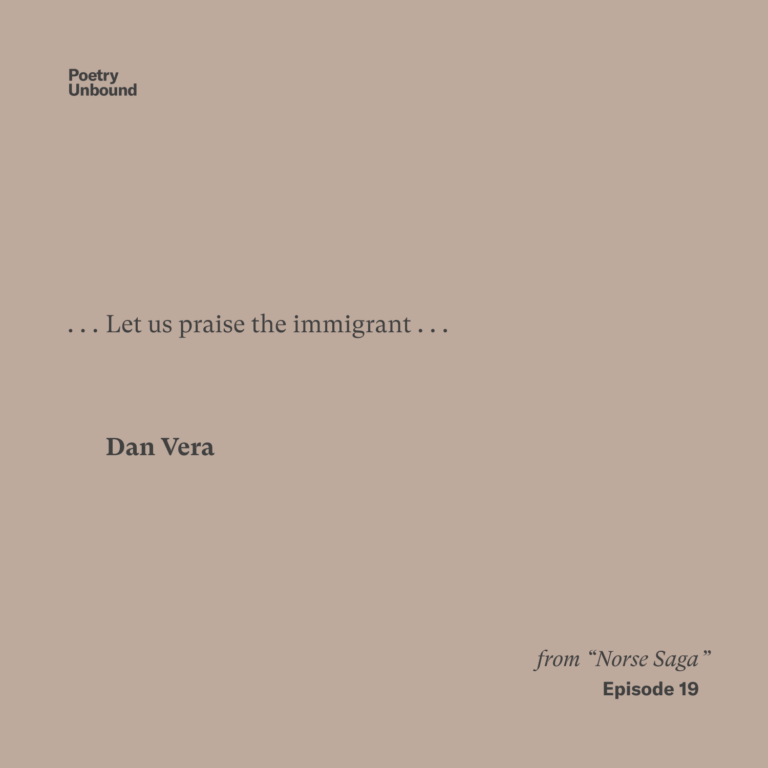
Guest
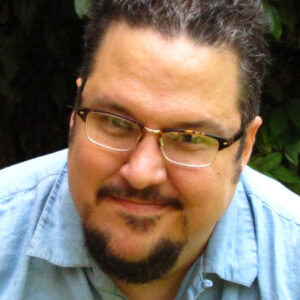
Dan Vera is a writer, editor, watercolorist, and literary historian. Vera is the author of two books of poetry: Speaking Wiri Wiri (Red Hen Press 2013) and The Space Between Our Danger and Delight (Beothuk Books 2008). His honors include the Oscar Wilde Award for Poetry (2017) and the Letras Latinas/Red Hen Poetry Prize (2012).
Transcript
Pádraig Ó Tuama: Friends, thanks very much for listening to Poetry Unbound. The Poetry Unbound book is out in loads of places around the world, and it’s almost out in the U.S. On December the 6th it will be launched in the U.S. And they’ll make a great holiday gift if you want to buy one or more than one. You can preorder a copy of the book at poetryunbound.org. And if you’re listening before the launch date, you can join us for an online launch in the evening of December the 6th. It’s all free and you can register for that too at poetryunbound.org. I look forward to meeting you on the page or meeting you at the launch.
[music: “Praise the Rain” by Gautam Srikishan]
My name is Pádraig Ó Tuama and in my twenties, I lived in Australia for four years. And obviously winter in Ireland is summer in Australia. And I could never get used to the way that people would say, “Oh, it was a boiling hot December day.” Part of my mind always thought, “We’re joking. That’s not true at all.” I, over the four years, continued to find myself feeling like I’ve been turned upside down and I never entirely could get used to the fact that seasons and temperature and the imagination of what weather to associate with what month was so different to everything that I was so used to.
“Norse Saga” by Dan Vera.
“Let us praise the immigrant
who leaves the tropics
and arrives in Chicago
in the dead of winter.
“Let us praise the immigrant
who has never worn coats
who must bundle up
against an unimaginable cold.
“For they will write letters home
that speak of it like Norse sagas
with claims that if a frigid hell exists
the entrance is hidden somewhere in this city.
“Let us praise the immigrant
who fears the depths of the subway
the disappearance of landmarks
to guide them through the labyrinth.
“Let us praise the immigrant
who dreams of the pleasures of sunstroke
who wakes each morning to the alien sight
of their breath suspended in the cold city air.”
[music: “Dust of Summer” by Gautam Srikishan]
This poem has a phrase that’s repeated four times: “Let us praise the immigrant.” Who’s the “us” in that? Who is speaking? We don’t know yet. Somehow it’s somebody who knows what’s going on, who can observe, who can see everything that’s happening in the life of the immigrant and is giving great adulation to everything that the immigrant is doing. What we can see is that they leave the tropics, they’ve arrived in Chicago, in winter, “the dead of winter”, it says, and they hadn’t worn a coat or hadn’t needed to at home.
This is an immigrant too, or these are immigrants, who write home, describing the weather in mythological terms and whose imagination of hell, perhaps, moves from being a hell of fire and brimstone into a hell of frigidity and icicles and cold. This is an immigrant for whom navigation of a city is a strange one. And for whom cold breath in the air is new. This is who’s being praised four times. In the middle of all of these experiences of strangeness somebody is honoring and speaking a voice of comfort, I suppose, a voice of celebration to somebody for whom everything seems new.
[music: “Dust of Summer” by Gautam Srikishan]
So there’s references to mythology everywhere throughout this poem. The title, first of all: “Norse Saga”. And then the journey that’s praised. So many mythologies are about the journey, you know, the person leaves or the stranger arrives. And then these people who’ve arrived see things in a new place that are strange to them. And the story is written here in letters that are being sent back home. Somehow there’s a connection with the old country, and you find that in lots of mythologies: somebody goes away and comes back and the story is communicated.
There’s places of drama. Here in this poem we hear of hell and its hidden entrances. And then another hell: the subway, the underground and labyrinths. And as well, the poem has high drama, which is often a part of mythology. And the high drama is pitting heat against cold over and over again. There’s the tropics mentioned and then “Chicago / in the dead of winter.” And then there’s coats and bundling up and the “unimaginable cold” and “frigid hell”. And then the opposite of that, the kind of ironic and exaggerated “pleasures of sunstroke” and “breath suspended in [the] cold city air.”
All of this is speaking about what it feels like and what it means to be foreign, to be in an alien place, as he calls it, where even your breath is suspended. Obviously, he’s speaking about the way your breath fogs up, but when you’re in a new place, it can feel like something is suspended. Ordinariness, settling in, so much is new that each new day has possibility, but it can also seem endless and it can seem bewildering. All of this he praises. The voice is praising from a point of view that seems to imply: it will work out.
[music: “Dust of Summer” by Gautam Srikishan]
I read and loved and chose this poem for this episode before I knew anything about Dan Vera. I’d read through the book and loved this poem, loved the drama of it, loved the praise of it. And then, in research, I came across the information about him. He’s based this poem on a particularity, not just a generalized imagination of a certain kind of immigrant.
He was born and raised the son of Cuban immigrants in South Texas. But before he was born, his parents had immigrated to the U.S. from Cuba, living in Chicago for two years. He says that they told him that they arrived with no coat, and his dad’s phrase was, “if there’s a frigid hell, the entrance is hidden somewhere in this city.”
As an adult, then he moved to Chicago for two years, Dan did. And he phoned his dad to tell him. And his dad said something like, “I told you about that city didn’t I?” It still lives in the dad’s memory, but also in the family mythology. This isn’t just about mythology linking it to Norse saga, this is about mythology of a son with parents and their life before him. Somebody who for a while in his life, as an adult, lived in Chicago for two years is almost writing back to a time when he wasn’t. Praising his parents. And in this way, it’s a personal family mythology as well as a mythology that goes beyond the particular circumstances of the Vera family.
[music: “Dust of Summer” by Gautam Srikishan]
During the time when his parents were living there, his mother was fearing the subway, the disappearance of all the landmarks when you’d go underground in order to get somewhere, but being entirely unsure and having no sense of direction when she was underground. You see these things appearing, beautifully, in the poem in a way that expands them out for our own associations with them. But they come with such a particular personal backstory from him into it.
This poem is in a book called Speaking Wiri Wiri, which is a phrase that his father would use when the kids in the family would be speaking too much English too quickly at the kitchen table. He’d accuse them all of speaking wiri wiri, kind of a phrase he made up, perhaps, saying what English sounded like to him or fast English sounded like to him when they were all living in South Texas.
Elsewhere in his work, Dan Vera does write about about the gulf between immigrant parents and the child of immigrant parents. And the yearning culturally, linguistically, and geographically, for places and memories that you inherit, but may not necessarily have experienced yourself. But this poem’s work is not to surface those aspects. This poem’s work is stitched together, over and over again, by praise. Praising people facing change, facing a choice to leave. Praising people’s capacity for adaptation and their humor and the dreams that live in their body that drive them to do what they do and to stay where they stay, the things that they see and do and how they live, all of this is being praised in this poem.
[music: “Dust of Summer” by Gautam Srikishan]
“Norse Saga” by Dan Vera.
“Let us praise the immigrant
who leaves the tropics
and arrives in Chicago
in the dead of winter.
“Let us praise the immigrant
who has never worn coats
who must bundle up
against an unimaginable cold.
“For they will write letters home
that speak of it like Norse sagas
with claims that if a frigid hell exists
the entrance is hidden somewhere in this city.
“Let us praise the immigrant
who fears the depths of the subway
the disappearance of landmarks
to guide them through the labyrinth.
“Let us praise the immigrant
who dreams of the pleasures of sunstroke
who wakes each morning to the alien sight
of their breath suspended in the cold city air.”
[music: “Praise the Rain” by Gautam Srikishan]
Chris Heagle: “Norse Saga” comes from Dan Vera’s book Speaking Wiri Wiri. Thank you to Red Hen Press who gave us permission to use Dan’s poem. Read it on our website at onbeing.org.
[music: “Praise the Rain” by Gautam Srikishan]
Poetry Unbound is: Gautam Srikishan, Eddie Gonzalez, Lilian Vo, Lucas Johnson, Amy Chatelaine, Kayla Edwards, and me, Chris Heagle.
Our music is composed and provided by Gautam Srikishan and Blue Dot Sessions.
This podcast is produced by On Being Studios, which is located on Dakota land. Open your world to poetry with us by subscribing to our Substack newsletter at poetryunbound.org. You may also enjoy our other podcast On Being with Krista Tippett, or our newsletter, The Pause. Visit us at onbeing.org to find out more.
Books & Music
Recommended Reading
The On Being Project is an affiliate partner of Bookshop.org and Amazon.com. Any earnings we receive through these affiliate partnerships go into directly supporting The On Being Project.






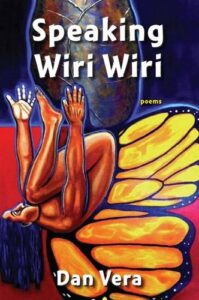
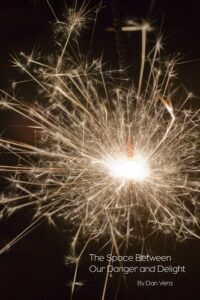

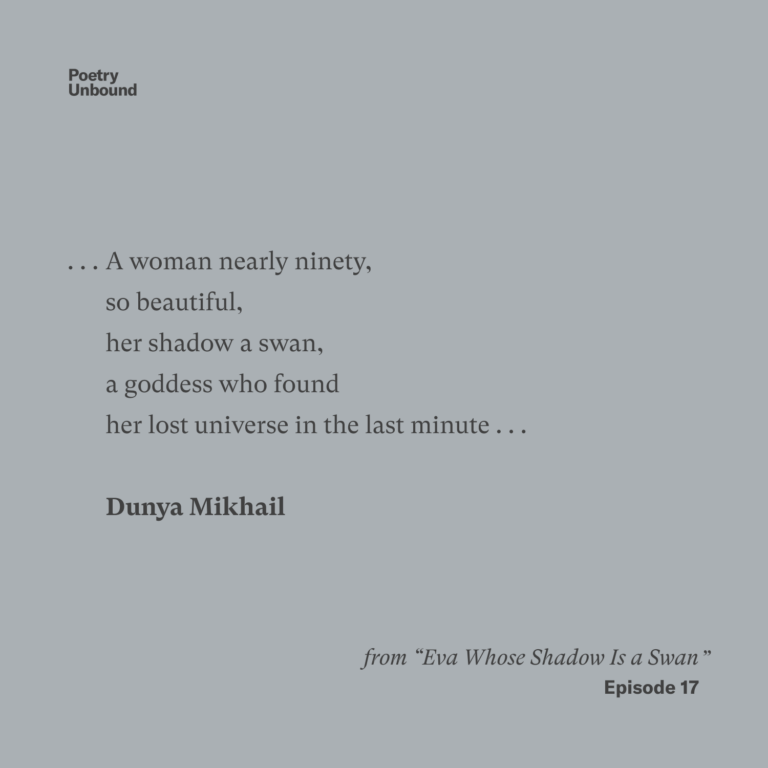
Reflections